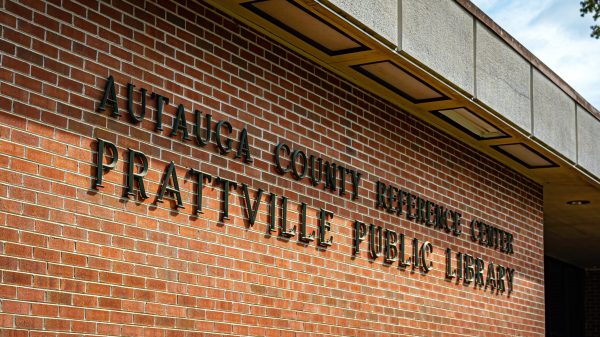|
Getting your Trinity Audio player ready...
|
Alabama phones could one day be required to have content filters turned on by default in an effort to protect children from pornographic material.
The legislation passed 8-4 out of the Senate committee on commerce and small business on Wednesday following a nuanced debate over the parameters of the law.
Only Utah has passed similar legislation, and that law does not take effect until four other states have enacted a similar law. Other states including Georgia, South Carolina and Tennessee have all blocked similar legislation from passing, as Alabama has done for years.
The bill came before the commerce and small business committee after years of being voted down in the House Judiciary Committee.
Opponents of the bill largely included telecommunications professionals, which proponents derisively referred to as “big tech.”
Proponents of the bill included a mother whose daughter gained access to pornography at age 7, leading to her being exploited by an online predator and having developmental issues.
“Alabama has a law in place to protect children from materials that are harmful,” said the bill’s sponsor, Rep. Chris Sells, R-Greenville. “It contains nudity, adult sex acts, all included in this law. It goes on to say that no one can operate a (adult bookstore, adult video store within 1,000 feet of a church, public housing project, a daycare, a public or private school—nowadays, you don’t see an adult bookstore or adult video store, because all of it is right 9in your phone).”
Patrick McWilliams, business account executive at Mediacom Communications, said nobody disagrees with the intent of the bill.
“What I have a problem with is that we’re basically trying to legislate this at the provider level,” McWilliams said. He compared the concept to penalizing gun manufacturers when one of their firearms is used in a crime.
For years, telecommunications representatives have said in addition to the liability, the process of setting the content filters on by default only in certain states is onerous.
Joe Haas, a software engineer form Dallas, told the committee it wouldn’t be difficult at all.
“It could be done in about a day,” Haas said. “For them to do this during the activation process would be absolutely trivial.”
As in the past, questions arose about the bill’s constitutionality and the definition of content “harmful to minors.”
Under the bill, a manufacturer must enable a filter automatically that filters out content “harmful to minors,” and failure to do so would make the manufacturer civilly liable. However, a provision exempts manufacturers from liability as long as the manufacturer “makes a good faith effort to provide a device that, upon activation of the device in this state, automatically enables a generally accepted and commercially reasonable method of filtration in accordance with this act and industry standards.”
Rachel England said her daughter is one of many children affected by unfettered access to pornography.
England said school-issued unprotected Chromebooks and social pressure from other children receiving smartphones led to her daughter coming across pornography.
“Her first exposure to pornography was in second grade on an unfiltered school tablet,” England said. “Exposing a child to today’s hardcore internet porn is tantamount to child sexual abuse and is prohibited by our laws. Yet my 7-year-old was thrust into a traumatizing world of extremely violent sexual images and videos. In a split second, her world of safety and innocence was fragmented. Accidental exposure had an untold impact on her health and wellness.”
Former state representative Neal Morrison, who once advocated for the death penalty for adults who moles ta child under the age of 12, spoke in opposition to the bill, telling the committee it targets the wrong entity.
“You’re not getting to the core of the problem,” Morrison said. “We’re going to penalize some phone company—we’ve all agreed the filter is already there—but we’re gonna penalize them if they don’t flip the switch; butt he culprit, the people who are doing the harm, we’re not doing anything.”
Morrison now serves as the vice president of government affairs for The Jones Group, a telecommunications company based out of Montgomery.
Barry Matson, chief deputy director of the Alabama District Attorneys Association, said he had heard the blame all shuffled around, but said this bill is simply asking phone providers to “step up to the plate” to bring an opportunity to curb the access to pornography.
Argo Knox with the MPAA said the bill is “blatantly unconstitutional” and will bring lawsuits down on the state.
He instead suggested to follow the lead of California, which has required pornography distributors to provide an age verification process for access to content.
Rep. Troy Stubbs, R-Wetumpka, said he and his wife have taken precautions to protect their children from harmful materials, but can’t control what could be on a friend’s device. This bill, Stubbs said, could help to alleviate that potential access point.
“We certainly can’t legislate everything, but if it saves one child from having an experience like this mother shared, then it’s certainly worthy of consideration,” Stubbs said.
Rep. Phillip Ensler, D-Montgomery, said his concern is how the bill could open up amendments in the future that bring other content into the definition of what is harmful to minors.
“The concern that I have is that if we start dictating to cellphone companies what filters they have to put on in the first place, we could decide ‘Oh, we don’t want want children to learn about certain aspects of American history,'” Ensler said. “This is limited in scope, but it opens up the door for people to come back in subsequent years and say ‘Well I don’t think children should have access to—and becomes a first amendment concern, in my opinion.”
The bill was voted favorably along party lines.






















































